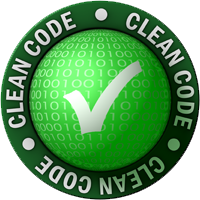For the last month I've been spending a lot of time working on Space War. I know, I know, I should have been working on Clean Code Episode 67: Legacy Code, and Euler 5, and Countest and Curmugeon 3. I should have been working on a blog, or a new book, or... But I couldn't let go of Space War. It kept calling me.
The first time I wrote Space War was in 1978. I wrote it in Alcom, which was a simple derivative of Focal, which was an analog of Basic for the PDP-8. The computer was an M365 which was an augmented version of a PDP-8 and was proprietery to Teradyne, my employer at the time.
The UI was screen based, using character graphics, similar to curses. Screen updates took on the order of a second. All input was through the keyboard.
We used to play it on one machine while waiting for a compile on another.
Forty years later, in September of 2018, I started working on this version of Space War. It's an animated GUI driven system with a frame rate of 30fps. It is written entirely in Clojure and uses the Quil shim for the Processing GUI framework.
My justification for writing it was so that I could use it as the case study for my cleancoders.com videos on Functional Programming. Once that series of videos was complete, I set Space War aside and started working on other things.
Then, a month ago, the program called to me. I don't know why. Perhaps it was because I'd left it in a partially completed state. Perhaps it was because I had just finished Clean Craftsmanship and I needed a way to decompress. Or, perhaps it was just because I felt like it. Whatever the reason, I loaded up the project and started goofing around with it.
Now I'm sure you've had that feeling of trepidation when you pick up a code base that you haven't seen in three years. I certainly felt it. I mean, what was I going to find in there? Would I be able to get my bearings and understand the code? Or would I flail around aimlessly for weeks?
I needn't have worried. The code base was nicely organized. There was a very nice suite of tests that covered the vast majority of the game logic. The GUI code, though not tested, was simple enough to understand at a glance.
But, perhaps most importantly, this code was written to be 100% functional. No variables were mutated, anywhere in the code. This meant that every function did exactly what it said it did; and left no detritus around to confound other functions. No function could be impacted by the state of the system because the system did not have "a state".
Now maybe you are rolling your eyes at that last paragraph. Several years ago I might have rolled my eyes too. But the relief I experienced coming back into this code base after three years of not touching it, and knowing it was functional, was palpable.
Another thing that gave me a significant amount of help was that all the critical data structures in the system were described and tested using clojure/spec. This was profoundly helpful because it gave me the kind of declarative help that is usually reserved for statically typed languages.
For example, This is a Klingon:
(s/def ::x number?)
(s/def ::y number?)
(s/def ::shields number?)
(s/def ::antimatter number?)
(s/def ::kinetics number?)
(s/def ::torpedos number?)
(s/def ::weapon-charge number?)
(s/def ::velocity (s/tuple number? number?))
(s/def ::thrust (s/tuple number? number?))
(s/def ::battle-state-age number?)
(s/def ::battle-state #{:no-battle :flank-right :flank-left :retreating :advancing})
(s/def ::cruise-state #{:patrol :guard :refuel :mission})
(s/def ::mission #{:blockade :seek-and-destroy :escape-corbomite})
(s/def ::klingon (s/keys :req-un [::x ::y ::shields ::antimatter
::kinetics ::torpedos ::weapon-charge
::velocity ::thrust
::battle-state-age ::battle-state
::cruise-state
::mission]
:opt-un [::hit/hit]))
These kinds of clojure/spec descriptions gave me the documentation I needed to reaquaint myself with the critical data structures of the system. They also gave me the ability to check that any functions I wrote kept those data structures conformant to the spec.
All of this means that I was able to make progress in this code base quickly, and with a high degree of confidence. I never had that feeling of wading through bogs of legacy code.
Anyway, I'm done now, for the time being. I've given the player a mission to complete, and made it challenging, but possible, to complete that mission. A game requires 2-3 hours of intense play, is tactially and strategically challenging, and is often punctuated by moments of sheer panic.
I hope you enjoy downloading it, firing up Clojure, and playing it. Consider it my Christmas present to you.
One last thing. Three years ago Mike Fikes saw my Space War program and converted it from Clojure to ClojureScript. The change was so miniscule that the two are now a single code base with a tiny smattering of conditional compilation for the very few differences. So if you want to play the game on-line you can just click on http://spacewar.fikesfarm.com/spacewar.html. Mike has kindly kept this version up to date so -- have at it!
